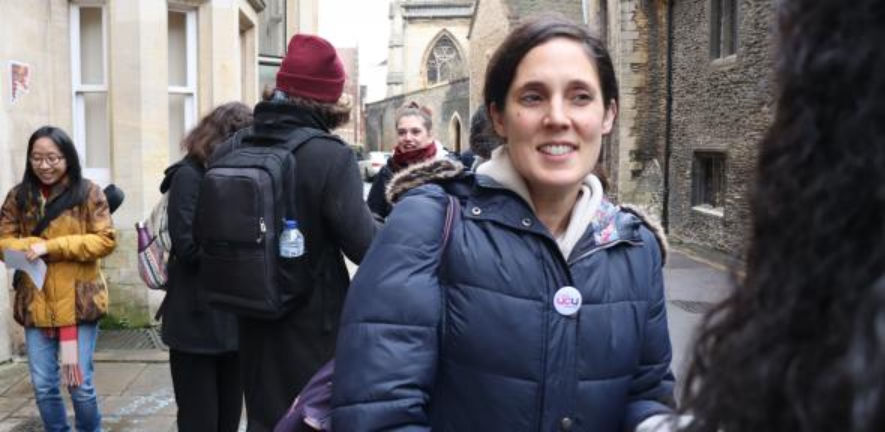
We can look back at the 2018 and 2019 strikes as a precedent in terms of what this strike will be like for students and staff.
While, in many ways, it was a challenging time, it was also one of great community solidarity and the emergence of new forms, topics and politics of knowledge. The teaching and learning together occurs in new ways on the picket lines, in teach outs, and in the new spaces for conversation and debate opened up by strike activities. The strike is against the University and labour conditions, not against teaching, and we hope that you join us over the strike days to find new ways of learning together.
Why are we striking (again)?
The main reasons for the strike are pensions – lecturers are being asked to contribute £40,000 more over their career and get back £200,000 less in their retirement – as well as lower pay (there has been a 20% drop over the past 10 years). However, the strike is also about lower pay and greater precarity for women and BME workers in universities, unacceptably high workloads and the increasing "casualisation" of labour. The best way to find out more about the strike is to come and join your lecturers on one of the many picket lines around the University during the strike; you will find lots of academic staff willing to explain more about the strike and the law and etiquette of picketing to you.
Among the universities participating in the strike, Cambridge is in a unique position. This is because many of us work both for the University and for Colleges, and since the strike action is only against the University, all work paid for by the colleges is not part of the strike. As a result, undergraduate supervisions will continue, but the UCU has asked us to consider rescheduling any supervisions falling on strike days so as to maximize participation on the picket lines. Please bear with us as we consider how to do this, and remember that even if your supervision is moved, you can still submit your essays according to the original timeline.
What will the strike mean for students?
A strike is about maximizing disruption to the institution. As a result, union members are not supposed to cancel things in advance or to notify the institution if we are going on strike. While we certainly recognize this is also inconvenient for you, we hope you understand why we may not always be able to be forthcoming about logistics.
Again, we are very aware that you are caught in the middle of this serious labour dispute. We are really sorry about this and really wish that we did not have to strike in order to ensure fair working conditions for university teaching staff. While the strike will be disruptive for its duration, we wish to minimize the disruption to your exams, and so will follow the same procedure as we did last time, which ensures that we take teaching provision into account in the content of exams. For example, course organisers may add the same number of questions to an exam on topics that were covered as the number of missed topics without removing any topics. This ensures you still have the same choice on exams as you would normally have.
There has been a tremendous rise in precarity at universities around the nation, and we are striking in part for an end to casualisation. Those of us with more secure positions are more able to strike, and so we do so in solidarity with our colleagues who would like to strike but who cannot because of their particular working situations.
What striking staff won’t be doing (as this is part of our work for the University):
- Giving lectures
- Giving postgraduate supervisions
- Organising Part II supervisions in our roles as course organisers
- Answering emails
- Marking
- Crossing picket lines (i.e. we won’t enter any University buildings)
- Doing other university business (i.e. writing reference letters, attending meetings, etc.)
What striking staff will be doing:
- Protesting on the picket lines and at the rallies
- Organising teach-outs
- Rescheduling supervisions originally scheduled for during the strike (essays can still be submitted according to the original dates)
- Conducting college work (admissions, DoSing, etc.)
What students can do:
- Respect the strikes – don’t cross the picket lines, join them!
- Join teach-outs and other alternative educational spaces
- Write to the Vice Chancellor expressing your support for workers
- Work together with your classmates to cover missed material collaboratively
What we can do together:
- Be present on the picket line together, which will be held every morning in sites across the University
- Participate in the rallies on King’s Parade
- Design teach-outs together
Further resources
- ‘University staff don't want to strike for fair pensions and pay, but we're being forced to’ by Jo Grady, general secretary, University and College Union
- Cambridge UCU Strike FAQs (12 Nov 2019)




